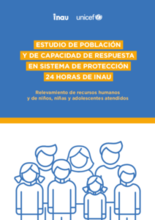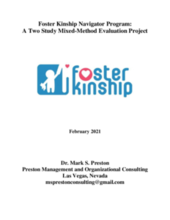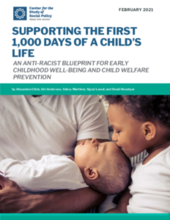This page contains documents and other resources related to children's care in the Americas. Browse resources by region, country, or category.
Displaying 551 - 560 of 3191
This webinar will include the experience of Resilient Children and Families Community Services implementing the Standards of Quality for Family Strengthening & Support with its eight Family Resource Centers in New York State.
A proposed class-action suit was filed on Monday in British Columbia Supreme Court, alleging that "a Catholic order shuffled known abusers from a notorious Newfoundland orphanage to two schools in the Vancouver area where more boys were victimized," according to this article from CBC News.
This systematic narrative review of the literature reports on the experiences of foster youth regarding the use of Internet Communication Technologies (ICTs) such as social media, focusing only on studies that include youth voice.
This study examined racial/ethnic disparities in reunification rates across U.S. child welfare systems controlling for child- and system-factors.
U.S. President Joe Biden has signed three executive orders "to rectify the consequences" of the previous "zero tolerance" immigration policy, including "establishing a task force designed to reunite families separated at the US-Mexico border," according to this article from CNN.
Study that investigates the situation of children and adolescents who have temporarily or permanently lost the care of their families and reside in INAU institutions: the reasons for admission, the length of stay, their family situation. In turn, this information is analyzed in conjunction with the response capacity of the institution (human resources and infrastructure).
This qualitative evaluation was to determine the level of fidelity of Clark County Nevada’s Foster Kinship navigator program to its navigator program manual and to ascertain if Foster Kinship’s navigator program for formal kinship families met the minimum standard for promising practice.
This report offers a blueprint for creating equity-centered, anti-racist policies that support the health and well-being of children and families of color.
This study examined the effectiveness of a two-session preventive parenting intervention, the Parent Check-In. The intervention, grounded in Self-Determination Theory (SDT), is designed to facilitate adaptive parenting, specifically autonomy support, structure and involvement, and parenting efficacy, and to increase autonomous self-regulation and decrease behavior problems in children.
This article offers a critical cultural reading of narratives on family reunification in Haiti in social media and advocacy discourse, revealing how this approach privileges Northern assumptions about proper parenting and family life.




